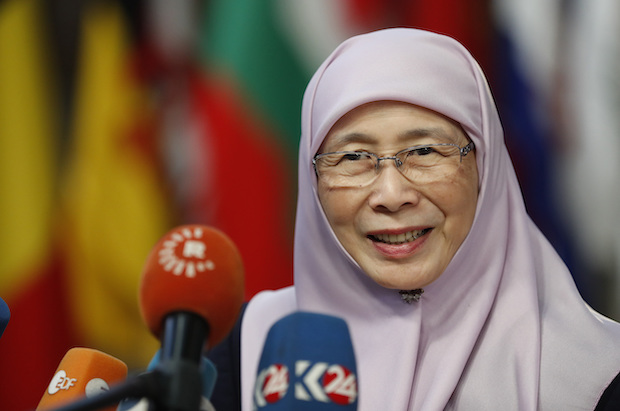
KUALA LUMPUR: Malaysia is considering imposing night-time curfews on young people under 18 years of age in a bid to protect them from negative influences such as drugs.
The curfew is one of a number of measures being discussed as the country looks to overhaul its approach to drugs, with a focus on health and social support for users rather than enforcing criminal laws.
Authorities are considering setting a time limit for young Malaysians who can be out of the house without adult supervision, to shield them from negative activities, the Straits Times newspaper in Singapore reported.
Deputy Prime Minister Wan Azizah Wan Ismail confirmed that the idea came up on Thursday during a meeting of the cabinet committee on eradicating drugs, which she chairs.
She said police records show that glue sniffing is becoming a serious problem among the young.
Malaysia would not be the first country to introduce a curfew on teenagers and children. Iceland has something similar, the minister noted.
“We are looking at this policy practised by Iceland. This is a model that we can emulate,” she said. “It may not be easy to implement but we feel this is necessary and can definitely help prevent young people from being involved in negative activities.”
Under Iceland’s Child Protection Act, children under 12 may not be outdoors after 8pm unless accompanied by an adult.
Children aged 13 to 16 may not be outdoors after 10pm, unless they are on their way home from a recognised event organised by their school, sports organisation or youth club.
Those who break the curfew are taken to a police station and their parents will have to pick them up there.
The cabinet committee is also of the opinion that Malaysia’s Dangerous Drugs Act 1952 needs to be reviewed and that drug use should be viewed as a social health issue, Liew Vui Keong, a minister in the Prime Minister’s Department, said in a statement.
“Enforcement shouldn’t hinge on trafficking of drugs and shouldn’t rely on punishing those who are using the drugs,” Liew said. Criminal enforcement has been ineffective, expensive and endangered the health of addicts, he said.
The change of approach comes amid Prime Minister Mahathir Mohamad’s efforts to eradicate drug use, change related laws and abolish the death penalty in the country.
“Health-based approaches to drugs are shown to be cost-effective” and have a positive impact, Naomi Burke-Shyne, executive director of Harm Reduction International, said in a statement responding to the Malaysian initiative.